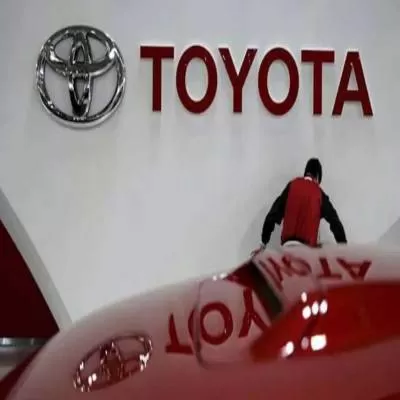

Last year, Tony Le and his wife embarked on a journey to purchase a new car. Despite considering all-electric models, including Tesla, the 37-year-old tech worker from Modesto, California, ultimately chose a Toyota RAV4 Hybrid. Le's decision was driven by concerns about potential issues, such as getting stranded with a dead battery and no charging station in sight during his frequent drives from California to Washington state for work.
Le is part of a growing trend where consumers are increasingly favouring hybrid vehicles. This shift has positioned long-time hybrid manufacturer Toyota Motor as a leader, outpacing competitors who have rapidly embraced full electrification but now face challenges due to weakening demand for electric vehicles (EVs). High interest rates and economic uncertainty have led many EV makers to revise production targets and anticipate slower sales growth.
In contrast, Toyota is expected to present a positive outlook in its upcoming earnings report, largely attributed to its substantial reliance on hybrid vehicles, constituting around one third of its total sales exceeding 10 million vehicles last year.
Greg Davis, the general manager of Walser Toyota in Minnesota, highlighted Toyota's commitment to hybrids, stating that nearly every model they sell is either exclusively hybrid or has a hybrid variant. The dealership aims to increase hybrid vehicle sales to 40%-50% of total sales. Toyota's strategy includes making its best-selling US sedan, the Camry, available exclusively in a hybrid version. The company has announced that the next generation of the Camry will be offered solely as a hybrid, marking a bold move to promote the technology pioneered by the Prius over a quarter-century ago.
Despite the anticipated short-term boost in sales, analysts caution that Toyota faces a significant risk as it lags behind in the production of pure battery EVs, considered the long-term future of the auto industry. While Toyota is set to report positive figures, its sales of battery EVs were only 104,000 units last year, accounting for less than 1% of total sales, including the luxury Lexus brand. The company aims to increase EV shipments to 1.5 million units by 2026, falling short of Tesla's projected 2023 shipments of 1.8 million vehicles.
Toyota's Chairman, Akio Toyoda, has emphasised a "multi-pathway" approach to cater to diverse customer needs in various markets. He stated last month that battery EVs are expected to reach a market share of 30% at most, with the remainder filled by hybrids, hydrogen fuel-cell cars, and traditional fuel-burning vehicles. Despite Toyota's success in the hybrid market, the company faces the challenge of adapting to potential shifts in consumer adoption of battery EVs.